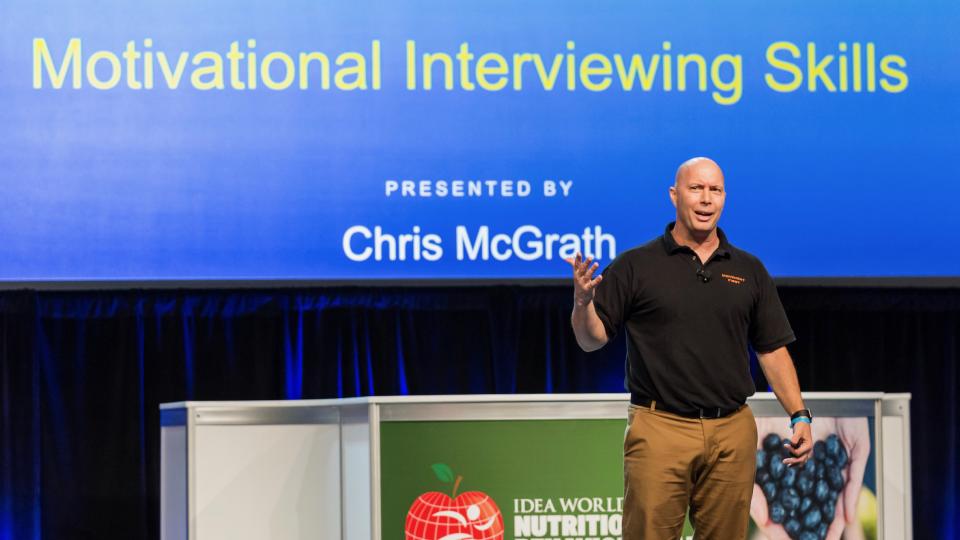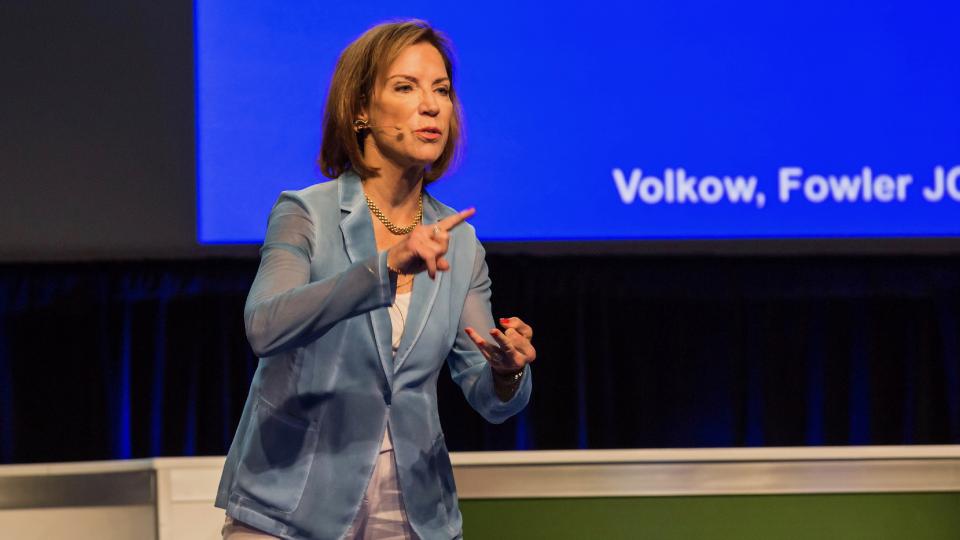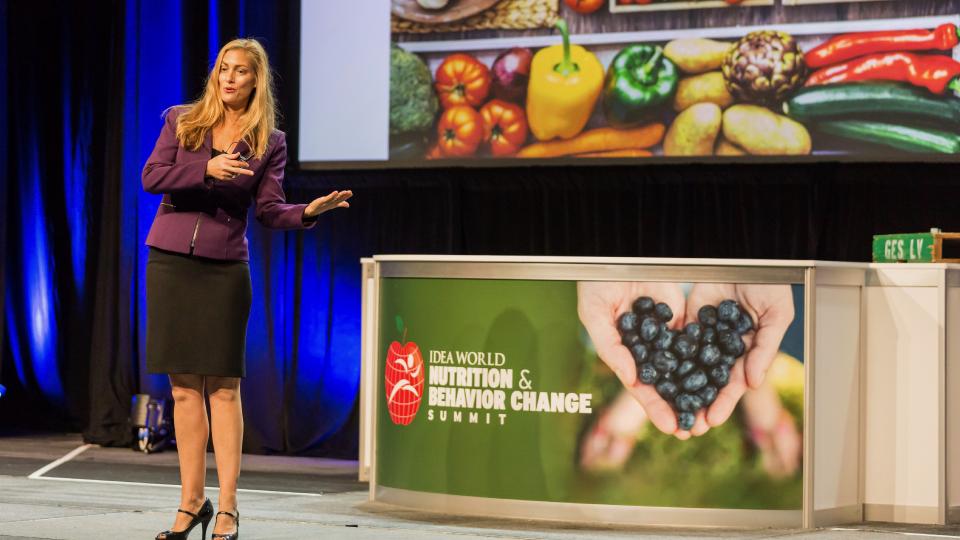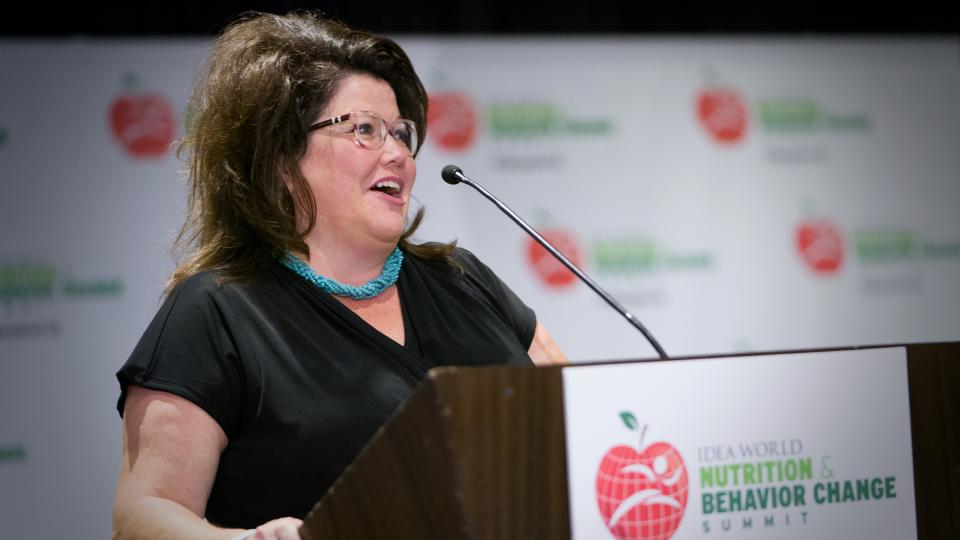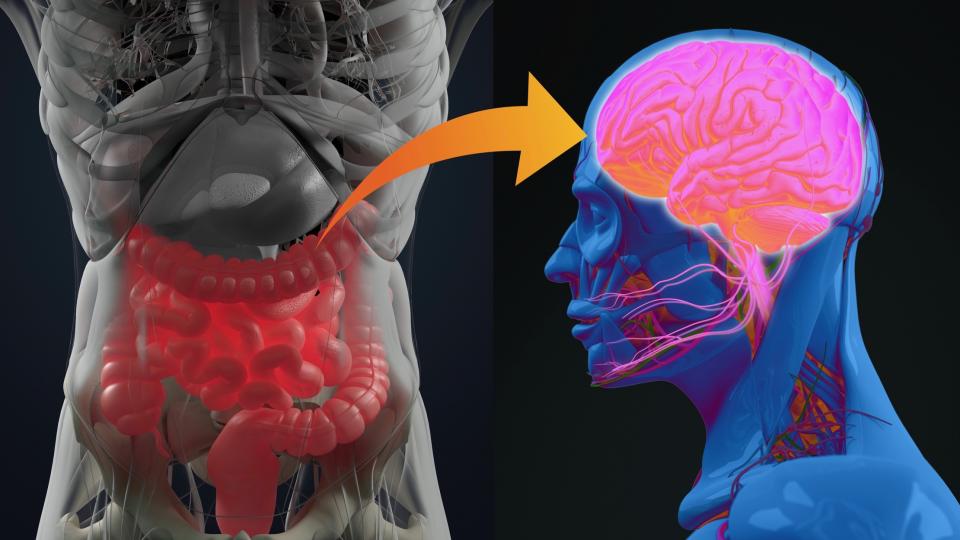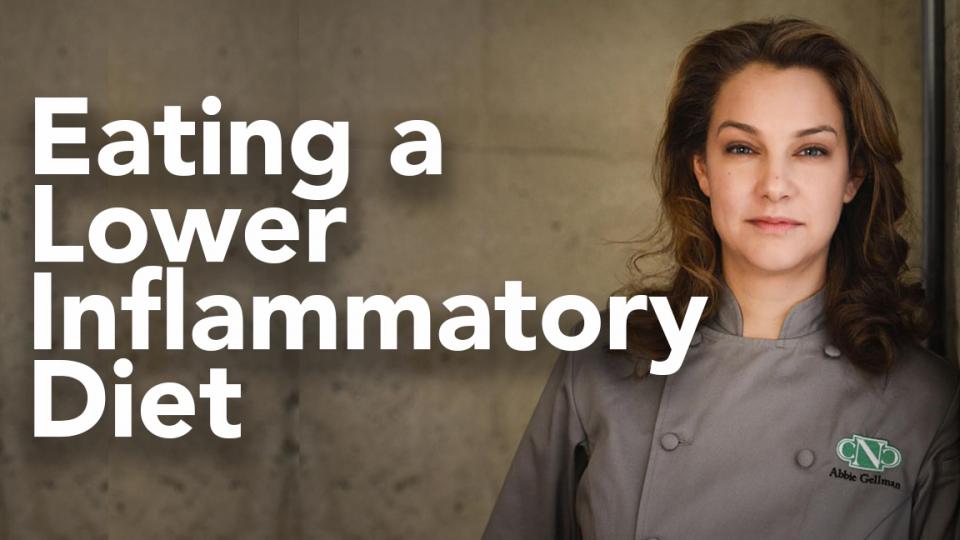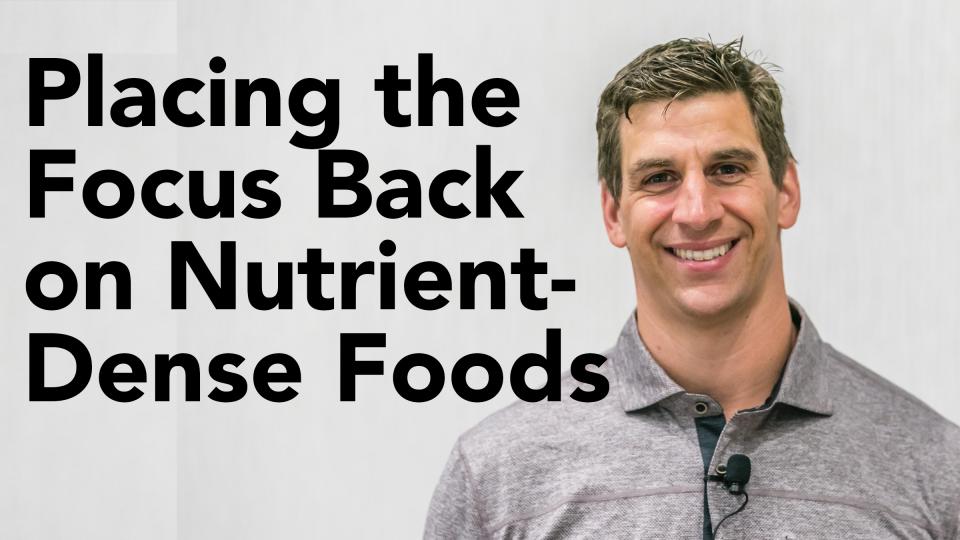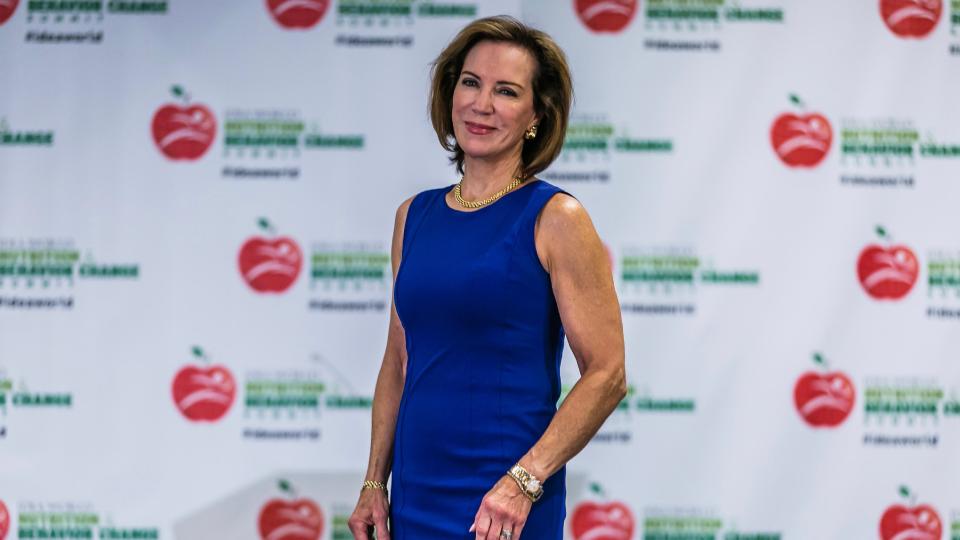Goodbye Infobesity, Hello Action Plan!
Information overload (infobesity), even good quality research, is a big part of what’s keeping your client from results. This expert will lay out a clear roadmap of action steps on how health professionals can help clients to set the destination, navigate the road, conduct self-assessments, recognize when tune-ups are needed and instill confidence to maneuver…
Read MoreMotivational Interviewing Skills Produce Targeted Results
Our clients are individuals who differ widely in their challenges and aspirations for health and well-being. If we’re trying to unlock their motivation, why would we ask them all the same boilerplate questions? Individual needs demand tailored solutions. Learn to elicit the most important information from clients through skilled interviewing techniques that establish trust, spark…
Read MoreCaving to the Craving: The New Science of Food Addiction and Recovery…With a Twist
Pamela Peeke, MD, MPH, FACP, FACSM, presents the latest science behind addictive eating behavior and lay out a science-based, three-stage recovery plan that incorporates cutting-edge discoveries in epigenetics and neuroscience. Learn practical tools that you can use to help guide your clients as they transition from obsessions about “false fixes” to a reliance on healthier…
Read MoreGuiding Others to Create Their Healthiest, Most Delicious Lives
A whopping 80% of diseases can be prevented through lifestyle changes such as diet. Transforming what you eat and how you do it isn’t easy, but it is possible. In this course, Harvard-trained health expert Dr. P.K. Newby lays out the evidence behind nutrition behavior change, highlighting key skills that make healthy eating easy and…
Read MoreProtein Obsessed: Sorting the Truth From the Hype
No matter what food tribe you fall into, protein in all its forms—animal, plant or synthetic—seems to get most of today’s nutrition headlines. It promises to help us lose weight, get stronger and achieve many other benefits. In this thought-provoking course, Amy will break down the most recent science to guide you to a better…
Read MoreIt Takes Guts! Connecting the Brain, Diet and Microbiome
Breakthrough research is revolutionizing our understanding of the interaction and communication between the gut, brain, microbiome and diet. In this course, gain a deeper understanding of how mental and physical health are intimately tied to diet and the microbial population living on and within the human body. Discover the most up-to-date science advancements and a…
Read MoreEast Meets West: A Mindful Approach to Health Coaching
When combined, mindfulness and health coaching catalyze powerfully for meaningful and lasting behavior change. This course blends Eastern and Western philosophies along with best practices and proven skillpower—not willpower—into a research-supported framework that equips clients to make lifestyle and nutrition changes that will transform their health and well-being. Learn new ideas, techniques and tools to…
Read MoreEating a Lower Inflammatory Diet
Inflammation is a natural process that happens in our bodies when we exercise, age and get sick. From a nutrition perspective, there are a variety of ways to combat inflammation and there are myriad sources for help. Abbie Gellman, chef and registered dietitian, provides insight regarding different types of inflammation as well as a variety…
Read MoreBeyond the Macros: Placing the Focus Back on Nutrient-Dense Foods
You likely have clients who choose foods based solely on single nutrients. Whether they’re trying to get more protein, avoid carbs or cut out all sugar, such reductionist thinking negates the value of a food’s composite nutrient power. Learn why renewed focus on nutrient-dense foods may be the start of a more productive nutrition dialogue.
Read MoreIs It Time to Eat Yet? Nobel Prize-Winning Body Clock Science Has the Answer
The body clock gene plays a critical role in metabolic function. In a world of 24/7 nonstop chaotic eating, relentless stress, continuous screen-gazing, sedentary lifestyle and sleep deprivation, time has become irrelevant. Such constant disruptions of the powerful circadian rhythm are wreaking life-threatening havoc on mental and physical health. Learn a novel, science-based model to…
Read More
